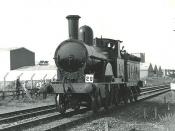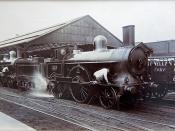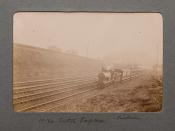Judges have an important role within the English legal system. William the Conqueror, after he gained the English throne in 1066, was the first person to begin the long process of standardising the law. Before this law was mainly based on local custom, and so obviously varied a great deal from place to place, and throughout this time the king would have had hardly any control over the country as a whole.
During William the Conquerors the principle of 'stare decisis' ('let the decision stand') was developed. This principle meant that when ever a new problem of law came to be decided, the decision reached formed a rule to be followed in all similar cases, thus making the law more predictable. By around 1250 a 'common law' had been developed that ruled the country as a whole. The principles of this common law are used by judges today. (Elliot & Quinn 1996)
A more recent reform to law was made by Sir John Jervis.
Jervis born in 1802, demonstrated aptitude for legal writing. From 1826 to 1830 he reported decisions of the Court of Exchequer and of the Exchequer Chamber with Edward Younge. His first book 'A Practical Treatise on the Office and Duties of Coroners with Forms and Precedents' was published in 1829, and ran to nine editions, and was in print for over 120 years. In 1832 he published a commentary of the new rules of the common law courts. He produced the Jervis Acts:
1) Indictable Offences Act (c42)
2) Summary Jurisdiction Act (c43)
These two acts dealt with the duties of the justices out of sessions with regard respectively, to indictable offences, summary convictions and orders.
3) Protection Act
This act was 'to protect justices of the peace from vexatious actions for acts done by...


